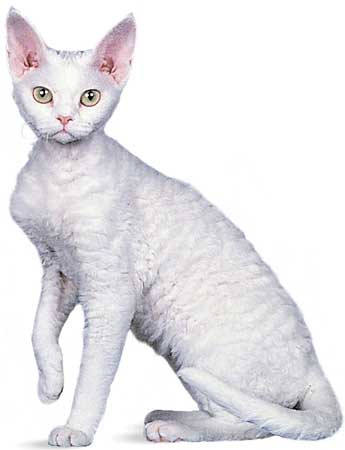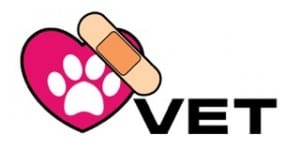Type the name of the breed you're looking for below
[wpdreams_ajaxsearchlite] Don't see the breed your're looking for? Click here and let us know!
Breed Characteristics
1 paw - breed exhibits the least amount of this characteristic
5 paws - breed exhibits most amount of this characteristic
Devon Rex
| Origin And History | The Devon didn't settle into the unsuspecting laps of us humans until 1960. The father of the Devon breed, a feral, curly-coated tom, lived around an abandoned tin mine near Devonshire, England. He mated with a straight-coated calico female that produced a litter of kittens in the garden of cat fancier Beryl Cox. One of the kittens, a brownish-black male that Cox named Kirlee, had the same short, curly coat as his father. Breeders think that the calico female and the curly-coated male must have been related, since the Devon Rex gene that governs the curly coat is recessive and must be present in both parents to manifest in the offspring. At first, Kirlee was thought to be related to the Cornish Rex. Subsequent matings between Kirlee and the cats of Cornish breeder Brian Stirling-Webb resulted in only straight-coated offspring, from which Cox and Webb concluded that the two breeds were unrelated. The name Devon Rex was adopted for the new breed, and a breeding program established. The first Devon was imported to the United States in 1968. Through careful outcrossing, breeders have expanded the Devon Rex gene pool while retaining the integrity of the breed. While he has never quite caught up to the Cornish Rex in popularity, the Devon has made great strides and is seen more and more frequently in the show halls and judging rings. |
| Personality | The typical Devon is active, mischievous, playful, and very people-oriented. They have been described as a cross between a cat, a dog and a monkey (or, more famously, as "a monkey in a cat suit"). They are high-jumpers and will try to occupy any space large enough to admit them. With this trait, they are often found in odd nooks and crannies of a closet, shelf, or laundry basket. Devons prefer to be in high places and will go to great lengths to get to the highest spot in a room. They are relatively easy to take care of. Most Devons also have one central person to whom they devote their love, and on whom they will most often lie and rub. They like to playfully nip, and love to play throughout their lives. They are a very intelligent breed; the typical Devon Rex can be trained to walk on a leash, fetch or perform all manner of tricks usually associated with canines, like jump, heel and tag to name a few. Another common trait is their show of affection: they have a particular penchant for being close to the head or neck of their human companions and can often be found mounted upon one's shoulder or nestled into the cranny created by the neck and shoulder when one is prone. The Devon Rex is a faithful companion and will usually follow the object of their affection from room to room, waiting for the opportunity to leap onto their arms, lap, or shoulder. Words of caution: Devons are food hounds. Whether it is the traditional burger and fries or the more unusual asparagus tips, grapes, or olives, be prepared to guard your dinner plate from the fast and crafty Devon in the house. They never turn down a meal and would be happy to assist you with yours. Do not be taken in by the pleading or the heartbreakingly pitiful expressions that would suggest they have not had a meal in weeks. |
Physical Attributes
| Appearance | While the Cornish's coat lacks guard hairs, the Devon's coat contains all three hair types (guard, awn, and down), but the guard hairs are typically fragile and stunted, and the whisker hairs are often missing altogether. The hairs break easily and therefore this breed can develop bald patches that remain until the next hair growth cycle (typically fall and spring). Devons need very little grooming; their favorite grooming tool is your hand, applied on their heads and down their backs. |
| Health | Despite popular myth, Devons are not hypoallergenic. They do shed, although their unique coat may make the shedding hair less obtrusive than that of many cats. While some people with animal allergies tolerate Devons very well, anyone with allergy issues should arrange to handle a Devon before considering acquiring one. |



